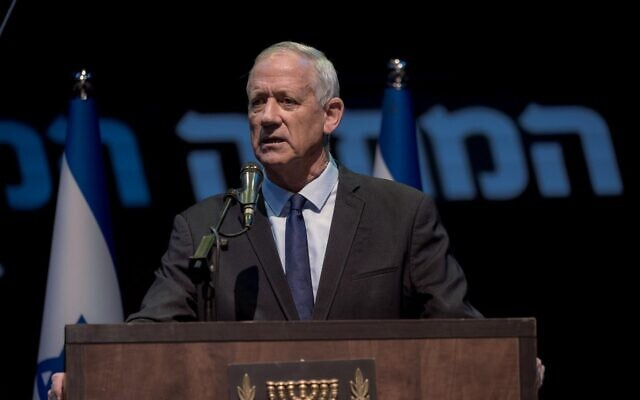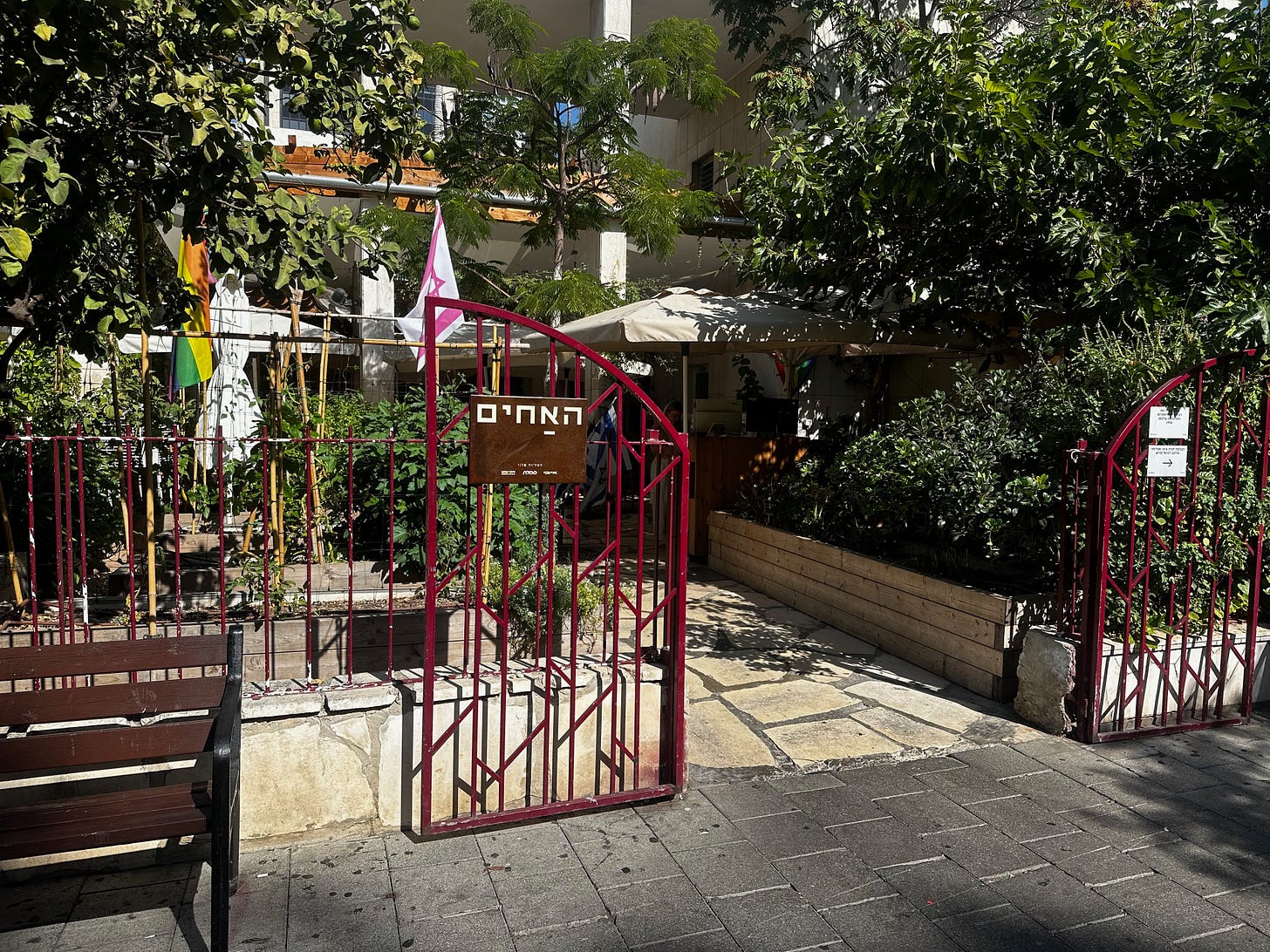Tel Aviv Diary September 8, 2023
Netanyahu Spins Judicial Overhaul, Terror Attacks Continue, Eritrian Refugees Riot, Israel and Ukraine- The Mossad Discloses Secrets of the Yom Kippur War, Business and a Review
Judicial Overhaul and the Supreme Court
Writing about the events of the past week is a challenge — I could claim that so much has transpired, or suggest that absolutely nothing happened at all. Both statements would be correct. As sadly, in the end, despite everything you are about to read here, nothing has really changed.
On Tuesday September 12th, the Supreme Court is set to to hear arguments as to whether the law that prevents courts from utilizing 'reasonableness' as a criterion in their decisions should be overturned. In addition, Prime Minister Netanyahu is slated to fly to the U.S. for the U.N. General Assembly meeting the day after Rosh Hashanah, where he will meet President Biden in New York during the Assembly.
Earlier this past week, Netanyahu seemed on the verge of abandoning efforts to advance the proposed contentious judicial overhaul. Leaked information suggested Netanyahu had proposed the following plan to President Herzog. The recent “Reasonableness” bill would be diluted; the composition of the committee for judicial appointments would remain unchanged but would require that all judges be selected with the support of at least seven committee members. Currently, that requirement only applies to selection of Supreme Court justices. In addition, the government would enact a law prohibiting any further changes to the judiciary system for 18 months.
The President's office, which had negotiated the details this compromise agreement with Netanyahu’s lawyer, even indicated they had a letter of commitment from Netanyahu affirming those steps. However, as expected, it didn't take long before the Likud party issued a statement denying the existence of such a plan. Likud Justice Minister Yariv Levin promptly began giving interviews deeply criticizing the alleged compromise offer, as did other members of the Likud. Commentators widely expressed skepticism about the viability of reaching any compromise at this time, noting that few in the political arena trust Netanyahu's word.
Tuesday evening, MK and former Defense Minister Benny Gantz spoke, expressing his severe doubts about Netanyahu's sincerity. Gantz stated that if Netanyahu genuinely took steps to change the law eliminating “reasonableness” as a judicial tool (so that it would only apply to a limited number of situations), there would be room for discussion. However, Gantz shared that he wasn't optimistic about the chances of Netanyahu taking any proactive steps.
Gantz's speech, delivered just after 8 pm, was broadcast on all the major channels. Shortly before Gantz spoke, Netanyahu released a brief video clip urging Gantz to engage in dialogue for compromise, emphasizing their (theoretical) shared goals. The media was quick to showcase past instances where Netanyahu made similar overtures and then promptly made a 180-degree about-face shift. By evening's end, the prospects of reaching an agreement appeared to have dissipated completely— if such a possibility truly ever existed in the first place.
While Netanyahu attempted to convince everyone he was willing to compromise, Knesset Speaker Amir Ohana announced he would deliver a significant speech the following day. In his address, Ohana strongly cautioned the Supreme Court against overturning a “Basic Law”. The Knesset Speaker stated that if the Court took such action, the Knesset would not recognize it … and furthermore, hundreds of the Supreme Court's decisions would become void. Ohana's remarks were widely criticized as an attempt to intimidate the Supreme Court.
Initially, there were questions about whether Netanyahu was aware of the details of Ohana's speech, and if he concurred with its sentiments — especially since Netanyahu was ostensibly in the midst of an effort to broker a compromise. However, it soon became evident that Netanyahu had been informed about Ohana’s combative speech, as even reposted it on social media shortly after it was delivered.
The current general consensus is that the likelihood of reaching an agreement over the proposed judicial reform is slim. An increasing number of Likud Knesset members have voiced their intention to disregard the Supreme Court's decisions, should the court overturn a basic law. In support of these unprecedented MK statements, a group of Orthodox Rabbis penned a letter asserting that the final decisions rest with the Knesset, not the courts.
Basic Laws: When Ben-Gurion decided not to try to go forward with the writing of a constitution it was determined that over the years the Knesset would pass a series of “Basic Laws” and those would become Israel’s effective constitution. The original intent was that the Basic Laws would be passed with broad consensus. However, there was no mechanism put in place to ensure that, and today, a Basic Law can be passed with a simple majority — which every coalition possesses. In the past five years the whole idea of a Basic Law has been undermined by the passage of over 30 Basic Laws.
RIGHT-WING PROTESTS
On Thursday night, right-wing supporters organized a protest with an estimated 10,000 participants in front of the Supreme Court in Jerusalem. The turnout as much lower than previous demonstrations, and one of the notable facts was the appearance of some signs which stated: “Yigal Amir (PM Yitzhak Rabin’s assassin) was right”. Similar signs in support of Meir Kahane and Baruch Goldsten (who massacred Arabs in Hebron) were sprinkled throughout the crowd. At the rally, Finance Minister Smotritch warned the Supreme Court not to “dare overturn a Basic Law”
.
At this point, (for reasons I do not understand), the pundits all expect an immediate constitutional crisis. The court does not present instant decisions and it could be weeks until we hear a decision, and thus weeks until the issue comes to a head.
ERITREANS RIOT IN TEL AVIV
The week began with hours of riots in Tel Aviv on Saturday, primarily involving supporters and opponents of the current Eritrean government. The catalyst for these clashes was an event organized by the Eritrean Embassy event celebrating the 30th anniversary of the current ruler’s rise to power. Although the police had been forewarned about potential confrontations, as they had occurred in other cities around the world, they seemed unprepared for the magnitude of the violence.
Members of the local community had even implored the government to cancel the event. However, when the event went ahead as scheduled, rioting erupted between the pro and anti Eritrean government supporters. Quickly overwhelmed, police faced attacks and responded with force, even resorting to live ammunition at times. In total, over 100 individuals were hospitalized, including over 30 policemen, with several in critical condition, though all eventually stabilized.
THE ISSUE OF AFRICAN REFUGEES
The refugee issue swiftly became the focal point of political discourse. The right-leaning factions capitalized on the incident to criticize the Supreme Court, which had previously obstructed a government initiative aimed at detaining asylum seekers indefinitely.
In 2018, Prime Minister Netanyahu announced a plan—formulated after extensive negotiations with the UN—to address the refugee situation. According to this plan, half of the 40,000 refugees would depart the country under UN guidance, while the remaining half would be granted permission to stay and receive legal status. However, mere hours after the initial announcement, Netanyahu rescinded the plan. The reason? A segment of his political base expressed strong disapproval, prompting him to retract. Since then, there has been a stalemate on the issue.
It's worth noting that almost none of the refugees have undergone processes to determine their official status. When questioned about this, the Minister of Health and Interior offered a curious justification, noting that the staff responsible for these screenings earn a mere NIS 6,000 a month, implying limited expectations from such low-paid workers.
MIRI REGEV VS. SECURITY SERVICES
A bizarre incident occurred this week at Tel Hashomer Army Base involving both Defense Minister Galant and Transportation Minister Miri Regev. Regev was accompanying Galant to an event. Upon her arrival, the Shabak, responsible for protecting the Defense Minister, did not recognize Regev’s car and stopped it. The car reportedly hit the leg of one of the agents. When the Shabak persisted in their refusal to let them pass, Regev instructed her driver to proceed –— even if it meant running over the agents obstructing their way. The driver refused stating that there were people in front of the car, recording them, and Regev emphatically shouted at him “Drive! Drive!”. Surprisingly, this unbelievable scene was captured on video, which Regev, for reasons unknown, later released to the public via social media. Regev then alleged that the Shabak had assaulted her — a claim that was wholly untrue.
TERROR ATTACKS
Two individuals sustained injuries, one of them severe, in a stabbing incident near the Jaffa Gate of the Old City of Jerusalem. The assailant, a 17-year-old from East Jerusalem, wielded a meat cleaver. Several other attacks were attempted in the West Bank and the Jordan Valley.
UKRAINE
In a controversial move, the Israeli government entered an agreement with the Russian Cultural Ministry to collaborate in the realm of cinema. While I can somewhat grasp (though not entirely) Israel's reluctance to arm Ukraine for its defense, entering an accord with a nation currently under sanctions by the West is beyond comprehension.
Amidst this backdrop, Netanyahu had the audacity to phone the Ukrainian President on Thursday. Among the subjects discussed were security arrangements for the thousands of Chasidim who plan to visit Uman for Rosh Hashanah, amidst the ongoing war. If I were Zelensky, I'd stipulate that pilgrims were only welcome to arrive if they bring along the Iron Dome or its equivalent.
DIPLOMACY
President Herzog paid a two day visit to Slovakia and Austria. In Slovakia he met President Zuzana Caputova and in Austria he met with President Alexander Van der Bellen. In both places he met with leaders of parliament as well
Former Prime Minister and Head of the Opposition Yair Lapid visited Washington for a meeting with high-ranking administration officials.
A PIECE OF HISTORY —THE MOSSAD AND THE YOM KIPPUR WAR
In our chronology of Israeli history, we have reached the Six-Day War. However, with the 50th anniversary of the Yom Kippur War nearly upon us, many events are being held to commemorate that war. Last week, I published a glowing review of the film "Golda."
On Thursday, in commemoration of the 50th anniversary, the Mossad held a special event to release its book titled “Some Day When It Can Be Revealed.” The title originates from a conversation between Golda Meir and the Mossad Chief, where Golda remarked, “Some day, when it can be revealed, you and your team will receive recognition.”
This new book settles the long-standing debate regarding whether Mossad's top spy in Egypt, Ashraf Marwan, was a double agent. He was not. Marwan warned the head of Mossad the day before the war that hostilities would commence the next day. Earlier, Marwan had provided intel indicating that Sadat was exploring alternatives to war. Even more crucially, Marwan revealed that Sadat's perspective on initiating a war had shifted. Sadat no longer felt the need for advanced weaponry and air superiority. He believed he could launch a limited conflict without these advantages. While the Mossad took this information seriously, army intelligence dismissed it, holding on to their "conception" that Egypt wouldn't attack without air superiority — something it lacked at the time. Had this intelligence been heeded, perhaps thousands of lives could have been spared.
.
TOURISM
234,000 tourist entered Israel in August up 21% from the year before. This figure was still down 7% from 2019, which was the year that saw the largest number of tourist visits.
BUSINESS
This week, FinTech company ThetaRay announced it has raised $57 million, led by the FinTech fund Portage. The latest funding round also included participation from Erel Margalit's JVP fund — the largest shareholder in the company, and the Israeli investment platform OurCrowd.
ThetaRay is a company rooted in patented artificial intelligence technology designed to monitor transactions with the aim of reducing the risk of financial fraud. The company's clientele boasts notable names such as the Spanish bank Santander, the Emirati bank Mashreq, and the British bank Clearbank. While ThetaRay's development center is located in Israel, its headquarters is situated in New York.
The Israeli-American cybersecurity company Forescout is shutting down its development center in Israel. The announcement was made to employees yesterday. After previous rounds of downsizing, the company currently employs about 40 individuals in Israel in development and product roles, all of whom will be laid off. In practice, this means that Forescout's local operations, which have been ongoing since its establishment as an Israeli company in 2000, are now coming to an end.
Elbit Systems Ltd. has delivered a self-protection suite to the Royal Netherlands Air Force's (RNLAF) Gulfstream G-650ER VIP Aircraft. The delivery was carried out within a year of signing and after comprehensive flight acceptance tests. The aircraft was equipped with an advanced protective suite that includes Elbit Systems' Direct Infra-Red Counter Measures (DIRCM) and Infra-Red-based Passive Airborne Warning System (IR MWS), a configuration with an EASA supplemental type certificate (STC).
In addition Elbit announced it was awarded two contracts by a European country, worth an aggregate amount of approximately $200 million, to supply a C4I (Command, Control, Communication, Computers, Intelligence) solution to artillery battalions and a Hostile Fire Counter Attack (HFCA) solution. The contracts will be executed until 2026, with options for further extensions.
Ibex Medical Analytics, which specializes in cancer diagnosis based on artificial intelligence, raised 55 million dollars in a Series-C funding round. This round was led by the venture capital firms 83North and Sienna Ventures Capital. Following this, the total funding the company has received since its establishment in 2016 now exceeds 100 million dollars
.
A TASTE OF TEL AVIV—HA’ACHIM
RESTAURANT REVIEW, by Tali Schulman
Nestled within the charming ZOA house on Ibn Gvirol, Ha’Achim has gracefully claimed the delightful outdoor courtyard encircling the front of this historic building as its own. Since its inception in 2011, Ha’Achim, meaning "brothers" in English, has seamlessly woven itself into the fabric of Tel Aviv's vibrant culinary landscape. The ingenious minds behind this culinary gem are none other than actual brothers, Assaf and Yotam Doktor, who have orchestrated a multi-sensory journey through Israeli culture and cuisine.
Ha’Achim's menu features an array of dishes crafted from the freshest local ingredients. They skillfully marry classic Israeli and Mediterranean flavors with a contemporary twist, resulting in a mouthwatering selection that appeals to all palates. Personal favorites among their offerings include the spicy tomato salad, slow-cooked cabbage, and any of the impeccably prepared fish dishes.
Whether you opt for a leisurely lunch or an enchanting dinner under the stars, Ha’Achim offers an exceptionally inviting atmosphere. Additionally, their charming on-site market offers a delightful array of local ingredients that you can take home to infuse your own culinary creations with a touch of Tel Aviv's culinary magic. Ha’Achim truly embodies the essence of a the dining experience in the heart of Tel Aviv
.
For more Tel Aviv restaurant recommendations, you can find me on Instagram @talischulman where I save all my food adventures in my highlights!










